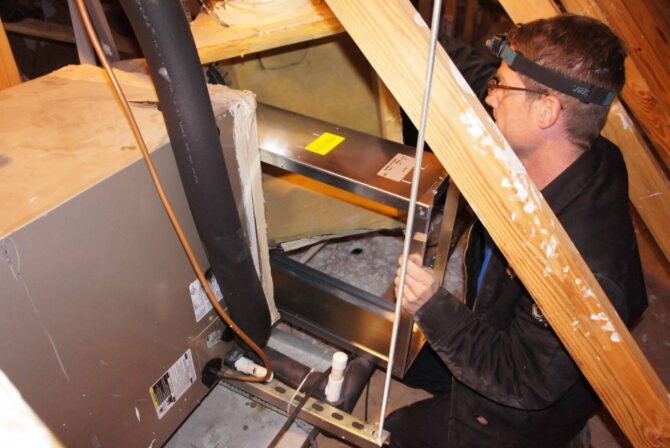
Whether you’re building a new home and installing a heater, or replacing an old one, choosing the right type of unit can be a tricky decision. Both gas and electric furnaces do their jobs effectively, but there are a few distinctions that make each type ideal for different homeowners.
First things first: Some subdivisions will be supplied with natural gas – and some are not. If your current system is using a fossil fuel (natural gas or propane), it’s typically best to keep the gas furnace for heating. On the other hand if fossil fuels are not available in the sub-division, then you can pair a heat pump with an electric furnace.
Here are some of the simple differences between a gas furnace and an electric furnace:
- A gas furnace operates on 120V electricity and fossil fuel, as noted above. The gas furnace will burn these fuels in the heat exchanger, which transfers heat to the air supplied by the blower. This blower distributes the heated air through the duct system and out the vents in your home.
- The electric furnace operates on 240V electricity and uses electric heating elements. These heating elements heat the air directly, and the blower moves the heated air through the duct system and out the vents in your home. In many cases, the electric furnace is paired with a heat pump, as noted above. The heat pump is the primary source of heating for the home, and the paired electric furnace would be used to provide additional heat in colder weather or provide (emergency) heat in the event of (an unlikely) malfunction of the heat pump.
Both types of heaters can efficiently do what they are supposed to. Different cities, states and climates can be a determining factor of which kind to choose, so it is best to contact an expert who can guide you in the right direction. Call the furnace installation experts at Champion AC to help you with your new heating unit.




